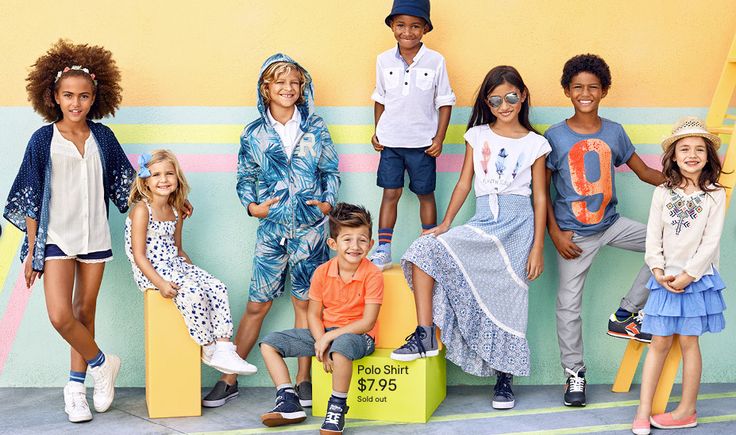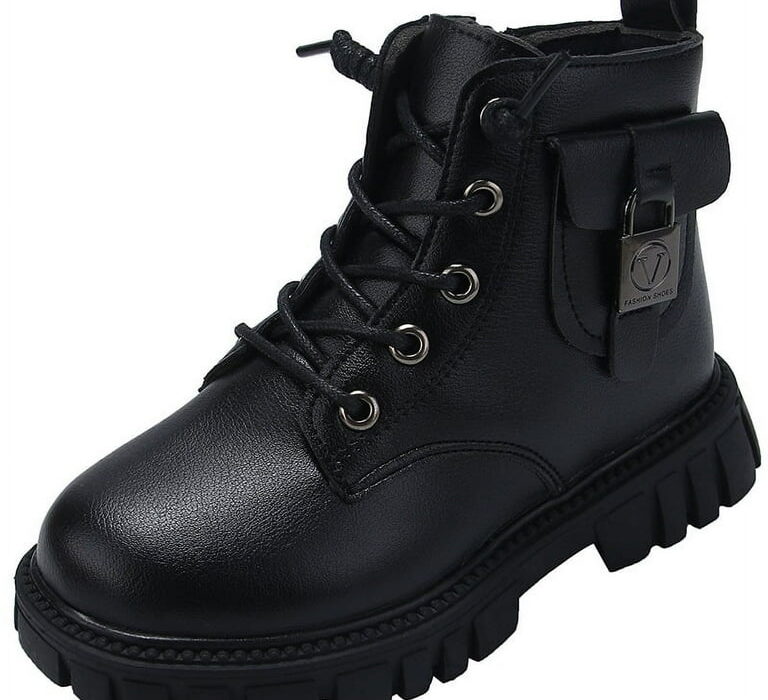Yes, kids’ seasonal fashion can be both trendy and practical. Parents can choose stylish options that prioritize comfort and functionality.
Seasonal fashion for kids has evolved significantly, blending style with everyday needs. Parents often seek clothing that not only looks great but also withstands the rigors of play. Trendy outfits today incorporate durable materials, ensuring kids can move freely and comfortably.
Fashion-forward designs now feature practical elements like easy closures, adjustable fits, and weather-appropriate fabrics. Brands are increasingly aware of the need for functional attire that appeals to both children and parents. This shift makes it possible for kids to express their individuality while staying comfortable. Embracing both trends and practicality enriches kids’ wardrobes, making them versatile for various occasions.
Table of Contents
Introduction To Seasonal Fashion For Kids
Seasonal fashion for kids blends fun and practicality. Children need outfits that suit changing weather. Parents want styles that are trendy and durable. This blog explores how to achieve both.
Current Trends In Children’s Wear
Children’s fashion is always evolving. Here are some current trends:
- Bright Colors: Kids love vibrant shades.
- Graphic Tees: Fun prints and designs are popular.
- Comfortable Fabrics: Soft materials make playtime enjoyable.
- Layering: Mix and match for changing temperatures.
- Eco-Friendly Options: Sustainable fashion is gaining traction.
Balancing Style With Functionality
Finding balance between style and functionality is key. Consider these factors:
| Factor | Style | Functionality |
|---|---|---|
| Material | Trendy fabrics | Durable and easy to clean |
| Fit | Stylish cuts | Room for movement |
| Design | Fashion-forward looks | Weather-appropriate features |
Choose clothes that are easy to wear. Look for designs that allow movement. Kids should feel comfortable while looking stylish.
Evolving Trends In Kids’ Fashion
Kids’ fashion constantly changes. Styles evolve to reflect culture and technology. Parents seek trendy yet practical clothing. Understanding these trends helps make better choices.
Historical Perspective
Fashion for children has a rich history. In the past, kids wore clothes similar to adults. This changed after the 19th century. Here are key historical points:
- Early 1900s: Children wore formal attire.
- 1940s: Casual styles gained popularity.
- 1980s: Bright colors and bold patterns emerged.
- 2000s: Graphic tees and brands became trendy.
Today, kids express individuality through fashion. Parents now want comfort and style. Brands create clothing that meets these needs.
Influence Of Social Media
Social media plays a huge role in kids’ fashion. Platforms like Instagram and TikTok showcase trends. Influencers often set the stage for what’s popular.
| Platform | Impact on Kids’ Fashion |
|---|---|
| Visual inspiration for trendy outfits. | |
| TikTok | Viral challenges promote unique styles. |
| Ideas for DIY fashion projects. |
Parents and kids browse these platforms for ideas. They discover what’s trendy and practical. Social media shapes preferences and choices. Kids now want to wear what they see online.
Essentials Of Kids’ Seasonal Wardrobes
Creating a versatile kids’ wardrobe is key. This ensures style and comfort. Seasonal outfits should be both trendy and practical. Kids need clothes that suit their activities and the weather.
Summer Staples
Summer brings warmth and fun. Kids need breathable and colorful clothing. Here are some essential summer staples:
- T-shirts: Soft cotton tees are great for play.
- Shorts: Lightweight shorts keep them cool.
- Dresses: Cute, flowy dresses for easy movement.
- Sandals: Comfortable footwear for beach days.
- Hats: Protect from the sun with stylish hats.
These items are both practical and trendy. Choose bright colors and fun patterns. Kids will love expressing their personality.
Winter Must-haves
Winter requires warmth and protection. Essential winter items keep kids cozy and stylish. Consider these winter must-haves:
| Item | Purpose |
|---|---|
| Coat: | Insulates against cold temperatures. |
| Boots: | Waterproof and warm for snow. |
| Scarves: | Keeps neck warm and adds style. |
| Gloves: | Protects hands from frostbite. |
| Layering Pieces: | Mix and match for warmth and style. |
Focus on quality materials for winter items. Choose fun patterns to keep it trendy. Kids can stay warm and fashionable.
Fashion Meets Comfort
Kids’ seasonal fashion can be both stylish and comfortable. Finding the right balance is essential. Parents want kids to feel good while looking trendy. Let’s explore how material choices and design innovations make this possible.
Material Choices
Choosing the right materials is key for kids’ clothing. Fabrics should be soft, breathable, and durable. Here are some popular choices:
- Cotton: Soft and breathable, perfect for daily wear.
- Jersey: Stretchy and comfortable, great for active kids.
- Fleece: Warm and cozy, ideal for colder months.
- Linen: Light and airy, excellent for summer outings.
These materials ensure kids can play freely. They also withstand the wear and tear of daily activities.
Design Innovations
Design innovations make kids’ fashion both trendy and practical. Many brands focus on functionality without sacrificing style. Here are some examples:
| Design Feature | Description |
|---|---|
| Adjustable Waistbands | Fit grows with your child, ensuring comfort. |
| Reversible Clothing | Two looks in one piece, versatile for outfits. |
| Easy Care Fabrics | Stain-resistant and machine washable for convenience. |
| Functional Pockets | Kids can carry their treasures without hassle. |
These features enhance both style and usability. Kids can enjoy their outfits without discomfort.
Durability In Children’s Clothing
Durability is key in kids’ fashion. Children play hard and explore. Their clothes need to keep up. Parents want stylish outfits that last. Choosing durable clothing helps save money and time.
Quality Over Quantity
Buying fewer, high-quality pieces is smarter. Here are some reasons why:
- Long-lasting: Quality materials withstand wear and tear.
- Cost-effective: Fewer replacements save money over time.
- Comfort: Better fabrics feel nice against the skin.
Investing in durable clothing pays off. Look for these quality indicators:
| Feature | Benefit |
|---|---|
| Stitching | Strong seams prevent ripping. |
| Fabric | High-quality material resists fading. |
| Design | Thoughtful designs allow for movement. |
Age-appropriate Durability
Kids of different ages need varying durability. Here are some age-specific tips:
- Toddlers: Look for reinforced knees and stretchy fabrics.
- Preschoolers: Choose easy-to-clean materials that resist stains.
- School-age: Select versatile styles that can transition from play to school.
Consider the activities your child enjoys. Clothes should match their lifestyle. Durable clothing can keep up with their adventures.
Sustainability And Eco-friendly Options
Fashion can be trendy and kind to our planet. Kids’ seasonal fashion now includes sustainable choices. Parents seek eco-friendly options that do not compromise style.
Kids grow fast. Choosing sustainable clothing helps reduce waste. Here are some great options: organic materials and recycled fabrics.
Organic Materials
Organic clothing is made from natural fibers. These fibers come from plants grown without harmful chemicals. Here are some benefits of organic materials:
- Safe for skin: No harmful dyes or pesticides.
- Biodegradable: Breaks down naturally in the environment.
- Durable: Lasts longer, reducing the need for replacements.
Brands offer a range of organic options for kids, including:
| Type of Clothing | Example Brand |
|---|---|
| T-shirts | Green Cotton |
| Pants | Pure Baby |
| Dresses | Frugi |
Recycled Fabrics
Recycled fabrics use old clothes to create new ones. This process saves resources and reduces waste. Here are some advantages:
- Less energy: Uses less energy than making new fabrics.
- Reduces landfill: Keeps clothes out of landfills.
- Innovative designs: Many brands create unique styles from recycled materials.
Popular brands using recycled fabrics include:
| Brand | Type of Clothing |
|---|---|
| Patagonia | Jackets |
| HM | T-shirts |
| Reima | Activewear |
Affordability Without Compromising Style
Finding stylish clothes for kids can be tricky. Parents want trendy outfits that are also practical. Affordability is key. Kids grow fast, so spending a lot is not smart. Luckily, there are great options that look good and fit the budget.
Budget-friendly Brands
Many brands offer stylish clothes without breaking the bank. Here are some popular choices:
- Old Navy: Offers trendy styles at low prices.
- Target: Known for fashionable yet affordable options.
- HM: Great for chic and budget-friendly finds.
- Gap Kids: Classic styles that are durable and stylish.
- Zara Kids: Fashion-forward choices without high costs.
Cost-effective Shopping Tips
Shopping smart helps save money. Use these tips to get the best deals:
- Shop Off-Season: Buy winter clothes in spring.
- Use Coupons: Look for discounts online or in-store.
- Join Loyalty Programs: Earn points for future savings.
- Thrift Stores: Find unique pieces at low prices.
- Sales Events: Take advantage of back-to-school and holiday sales.
With these strategies, kids can look stylish without high costs.

Credit: pinterest
Mix And Match: Maximizing Wardrobe Versatility
Kids’ fashion can be both trendy and practical. A versatile wardrobe allows for endless outfit combinations. Mixing and matching pieces keeps kids stylish and comfortable. Here’s how to maximize wardrobe versatility.
Layering Techniques
Layering adds style and warmth. It allows kids to adjust outfits easily. Here are some effective layering techniques:
- Start with a Base Layer: Choose lightweight t-shirts or tank tops.
- Add a Middle Layer: Use sweaters or cardigans for warmth.
- Finish with an Outer Layer: A stylish jacket protects against the weather.
Mix different textures and colors. Encourage kids to experiment. This creates unique looks every time!
Interchangeable Pieces
Interchangeable pieces are essential for a flexible wardrobe. These items can easily combine with others. Here are some key interchangeable pieces:
| Item | Description | Pair With |
|---|---|---|
| Basic T-Shirts | Solid colors or simple patterns | Jeans, skirts, or shorts |
| Denim Jacket | Classic and durable | Dresses or casual outfits |
| Leggings | Comfortable and stretchy | Tunics or oversized shirts |
| Cardigans | Lightweight and stylish | Tees or dresses |
Encourage kids to choose their favorite items. This builds confidence and creativity in their style choices.
Adapting Adult Trends For Younger Audiences
Fashion for kids can be exciting. It blends style and comfort. Adult fashion trends often inspire kids’ clothing. This adaptation makes kids feel trendy and comfortable.
Age-appropriate Adaptations
Adapting adult trends for kids requires careful thought. Styles must be fun and suitable. Here are some key points:
- Size Matters: Use smaller cuts to ensure fit.
- Fabric Choice: Choose soft, breathable materials.
- Color Palettes: Bright colors attract kids.
- Fun Details: Add playful elements like patterns or graphics.
Examples of adaptations include:
| Adult Trend | Kid’s Version |
|---|---|
| Maxi Dresses | Fun, flowy sundresses with bright prints |
| Chunky Sneakers | Colorful, lightweight sneakers for play |
| Oversized Hoodies | Cozy hoodies with fun graphics |
Inspiration From Runways
Runway shows set the stage for trends. Designers often showcase styles that resonate with kids. Here’s how to translate runway fashion:
- Look for themes: Identify patterns and colors.
- Mix and match: Combine different styles for a unique look.
- Incorporate accessories: Hats, bags, and jewelry add flair.
Trendy outfits for kids can reflect runway designs. Kids love to mimic adult styles. This connection boosts their confidence and creativity.

Credit: www.amazon.com
Inclusive Fashion: Catering To All Kids
Inclusive fashion means creating clothing that fits all children. It should be stylish and functional. Every child deserves to feel confident and comfortable. This section explores size inclusivity and adaptive clothing.
Size Inclusivity
Size inclusivity matters for kids’ fashion. It allows every child to find stylish outfits. Here are key points about size inclusivity:
- Clothes should fit a range of body types.
- Fashion brands need to offer extended sizing.
- Parents want options for all children.
Some brands now offer:
| Brand | Size Range |
|---|---|
| Brand A | 2T to 14 |
| Brand B | 5 to 20 |
| Brand C | Newborn to 16 |
Size inclusivity ensures all kids can express themselves. Trendy clothes boost their confidence.
Adaptive Clothing For Different Needs
Adaptive clothing is essential for kids with unique needs. These clothes make dressing easier and more comfortable. Key features of adaptive clothing include:
- Easy fasteners like Velcro.
- Soft fabrics that don’t irritate the skin.
- Adjustable sizes for growing kids.
Some brands focus on adaptive clothing:
| Brand | Special Features |
|---|---|
| Brand X | Magnetic closures |
| Brand Y | Stretchy waistbands |
| Brand Z | Tagless designs |
Adaptive clothing allows every child to dress independently. Fashion can be fun and functional.
Footwear: Combining Style And Practicality
Choosing the right footwear for kids is essential. Kids need shoes that look great and feel comfortable. Fashion and function can go hand in hand.
Seasonal Footwear Selection
Different seasons call for different types of footwear. Here’s a quick guide to help you choose:
| Season | Footwear Type | Key Features |
|---|---|---|
| Spring | Sneakers | Lightweight, breathable, fun colors |
| Summer | Sandals | Open-toe, adjustable straps, water-resistant |
| Fall | Boots | Insulated, sturdy soles, stylish design |
| Winter | Snow boots | Waterproof, warm lining, slip-resistant |
Comfort And Support Considerations
Comfort is key for kids’ footwear. Look for shoes that provide:
- Arch support to protect growing feet.
- Cushioned insoles for added comfort.
- Adjustable straps for a secure fit.
- Breathable materials to keep feet cool.
It’s vital to check the shoe size regularly. Kids’ feet grow quickly. A good fit helps prevent discomfort and injuries.
Choosing trendy footwear doesn’t mean sacrificing comfort. Look for brands that blend style with support. Kids can enjoy fashionable shoes while staying active and comfortable.
Accessorizing: The Finishing Touches
Accessorizing is key to making kids’ outfits shine. It adds personality and fun. Accessories can be both trendy and practical. The right accessories can elevate any look.
Functional Accessories
Functional accessories serve a purpose while being stylish. Here are some popular choices:
- Backpacks: Perfect for school and outings.
- Hats: Protect from the sun and keep warm.
- Sunglasses: Shield eyes from UV rays.
- Watches: Help kids learn time management.
- Scarves: Add warmth and style in winter.
Choose accessories that fit well. They should not hinder movement. Comfort is essential for active kids.
Seasonal Accessory Trends
Each season brings new accessory trends. Stay updated to keep styles fresh. Here are some trendy accessories:
| Season | Trendy Accessories |
|---|---|
| Spring | Colorful hats, light scarves, and fun sunglasses. |
| Summer | Cool backpacks, flip-flops, and sun hats. |
| Fall | Beanies, cozy scarves, and stylish boots. |
| Winter | Warm gloves, earmuffs, and insulated jackets. |
Mix and match accessories for a unique look. Kids can express their style with fun items. Practicality and fashion can go hand in hand.
Conclusion: The Future Of Kids’ Fashion
Fashion for kids is evolving rapidly. Parents seek styles that blend trendy and practical. The future promises exciting changes that cater to both needs. Let’s explore what lies ahead.
Predicting Upcoming Trends
Future trends in kids’ fashion will focus on several key areas:
- Sustainability: Eco-friendly materials will gain popularity.
- Versatility: Clothing items will be multifunctional.
- Inclusivity: Styles will cater to all body types.
- Tech Integration: Smart fabrics may enter the market.
Children’s fashion will also embrace vibrant colors and playful designs. Brands will emphasize comfort alongside style. This balance will attract both kids and parents.
Maintaining The Balance Between Trendy And Practical
Finding the right mix of trendy and practical is essential. Here are some tips:
- Choose durable fabrics that withstand wear and tear.
- Opt for styles that allow easy movement.
- Select timeless pieces that can be mixed and matched.
- Incorporate fun accessories to enhance outfits.
Brands can achieve this balance by:
| Focus Area | Trendy | Practical |
|---|---|---|
| Materials | Bold patterns | Durable fabrics |
| Fit | Fashionable cuts | Comfortable designs |
| Functionality | Stylish looks | Easy to clean |
This approach ensures kids feel good in what they wear. The future of kids’ fashion is bright, fun, and practical. Exciting possibilities await in every season!

Credit: arizonalove.store
Frequently Asked Questions
Can Kids’ Fashion Be Practical And Stylish?
Yes, kids’ fashion can blend style and practicality with versatile pieces that suit both trends and daily activities.
What Are Trendy Seasonal Styles For Kids?
Trendy seasonal styles include vibrant colors, playful patterns, and functional designs that cater to comfort and mobility.
How To Choose Practical Kids’ Clothing?
Opt for durable fabrics, easy closures, and machine-washable items that withstand active play while looking good.
Are There Eco-friendly Fashion Options For Kids?
Yes, many brands offer eco-friendly clothing made from sustainable materials, promoting both style and environmental responsibility.
What Accessories Enhance Kids’ Seasonal Outfits?
Scarves, hats, and comfortable footwear can elevate kids’ outfits while ensuring they remain practical for everyday wear.
Conclusion
Kids’ seasonal fashion can indeed be both trendy and practical. Parents can choose stylish pieces that also offer comfort and durability. By focusing on versatile outfits, children can express their unique style while staying ready for any activity. Balancing fashion and functionality ensures kids look great and feel confident all season long.







